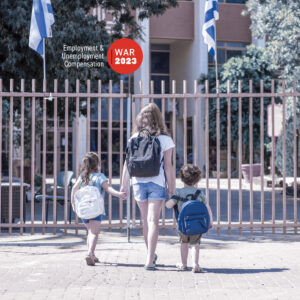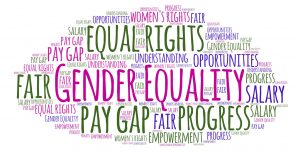The policy of ‘Arming Israel,’ as it is currently being conducted, will deepen the vulnerability of women in general and women who are caught in the cycle of domestic violence in particular
Despite repeated recommendations from professionals in the field of welfare and women’s organizations, no official data has been systematically collected on the phenomenon of violence against women in general and domestic violence in particular from 2001 until today. Information on the extent of physical, sexual, mental, or economic violence remains unavailable.
Studies show that only a minority of victims report the violence they experience. As a result, only partial official information about victims of violence is available to the authorities, representing just the tip of the iceberg.
Data from 2021 shows that tens of thousands of women victims of violence reported this to the police: 21,936 reported physical violence, 21,972 reported threats, and 5,444 women reported sexual crimes. In the same year, there were 13,106 patients in centers for the prevention and treatment of domestic violence, of which 66.2% were women, 11.4% were children and 22.5% were men. That year, 1,918 women, girls and boys stayed in shelters from domestic violence.
Women who are unable to get out of violent relationships and receive proper protection from the authorities pay with their lives: about 25 women in Israel have been murdered each year over the past several years, about half of them by their partners. Pro arming policymakers chose, unfortunately, to ignore this data.
Bringing firearms into the home may deepen patterns of violence against women, and certainly the sense of threat experienced by victims of domestic violence.
As much as the government has no intention of withdrawing from the dangerous policy of mass distribution of weapons, it should at least act to minimize the inherent danger. Therefore, it is necessary to act without delay to implement the recommendations of the 2019 Firearms License Procedure Audit Committee report (the Ronen Committee), and pay closer attention to the arguments put forward by women’s organizations and civil society organizations, led by the “Gun on the Kitchen Table” coalition.”
In order to minimize the expected harm to women, the national security policy with regard to the distribution of weapons must include, among other things: interfaces between the Ministry of Welfare and National Insurance and the Israel Police, the creation of supervision and control mechanisms that will include the obligation to install a safe, an in-depth examination of the consequences of the mass arming that will include collecting and publishing data systematically; revoking licenses issued in violation of the law and/or based on flawed procedures, a plan to collect weapons the day after the war, and implementing a policy of reducing the phenomenon of domestic violence.



